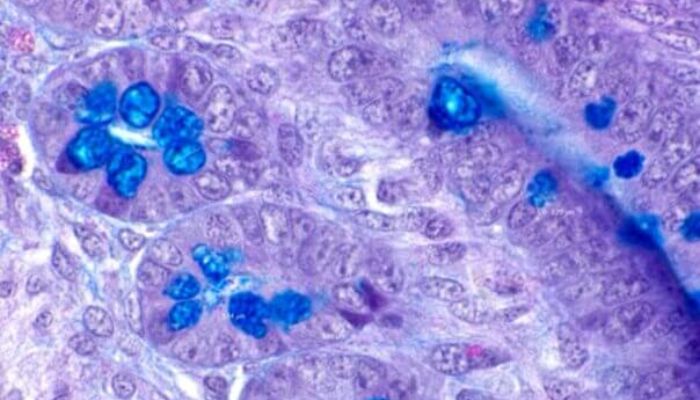Tiny particles in food colouring may be harmful to your gut
Your intestines may be experiencing health problems specifically because of metal oxide particles in food colouring
February 19, 2023

Researchers from Cornell and Binghamton Universities warn that common food colouring and anti-caking chemicals may include nanoparticles that are harmful to your digestive system. Your intestines may be experiencing health problems specifically because of metal oxide particles, they said in their article published in the journal Antioxidants.
“We are consuming these nanoparticles on a daily basis,” said senior author Elad Tako, associate professor of food science at Cornell, in a university statement.
“We don’t really know how much we consume; we don’t really know the long-term effects of this consumption. Here, we were able to demonstrate some of these effects, which is a key to understanding gastrointestinal health and development.”
In the past, Binghamton researchers oversaw in vitro cellular evaluations and tested several nanoparticles used often in the food and pharmaceutical industries. The team then focused on a particular type of metal oxide nanoparticle and validated the correct testing doses that are safe for intake by people.
Now, in the Tako laboratory's in vivo system, study authors used human-appropriate dosages of titanium dioxide and silicon dioxide in conjunction with Cornell experts. The model aids in representing a human-like response to health. The nanoparticles were injected into chicken eggs. The functional, structural, and microbiological markers in their blood, duodenum (upper intestine) and cecum which is a pouch that connects the small and large intestines, all changed after they hatched, according to the researchers.
“We found that specific nanoparticles – titanium dioxide and silicon dioxide – ordinarily used in food may negatively affect intestinal functionality,” Tako reports. “They have a negative effect on key digestive and absorptive proteins.”
The team also looked at the functions of iron oxide, a supplement for iron fortification, and zinc oxide, a micronutrient.
The research team discovered that zinc oxide nanoparticles support and possibly even assist the intestines in healing after damage. Iron oxide nanoparticles, on the other hand, seem to have a deleterious impact on gut health and function. As a result, while iron oxide may be a good alternative for iron fortification, it might not be the best choice for preserving gut integrity. Zinc oxide appears to work better for this.
The experts still don't believe it's time to completely outlaw the use of food-grade nanoparticles, despite the fact that these findings aren't all that great. To support that conclusion, an additional study would be required, and more practical advancements would need to be made in order to create healthier, more affordable, and sustainable alternatives.
“Based on the information, we suggest simply being aware,” Tako concluded. “Science needs to conduct further investigations based on our findings. We are opening the door for discussion.”











